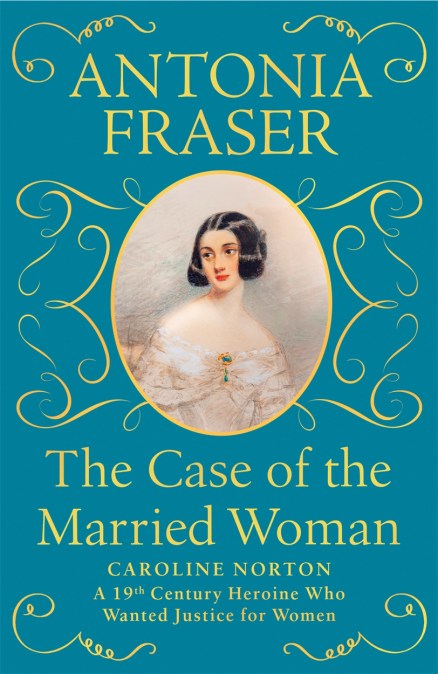‘Before biography was fashionable, Antonia Fraser made the past popular’ Guardian
‘As a pure storyteller, Antonia Fraser has few equals’ Sunday Times
CAROLINE NORTON, a nineteenth-century heroine who wanted justice for women.
Poet, pamphleteer and artist’s muse, Caroline Norton dazzled 19-century society with her vivacity and intelligence. In 1836 Caroline underwent a dramatic trial when her jealous husband sued the Prime Minister, Lord Melbourne, for adultery. Provisions which are now taken for granted – such as the right of a mother to have access to her children – owe much to Caroline, who was determined to secure justice for women at all levels of society. Award-winning historian Antonia Fraser brilliantly portrays a woman who refused to be curbed by the personal and political constraints of her time.
‘As a pure storyteller, Antonia Fraser has few equals’ Sunday Times
CAROLINE NORTON, a nineteenth-century heroine who wanted justice for women.
Poet, pamphleteer and artist’s muse, Caroline Norton dazzled 19-century society with her vivacity and intelligence. In 1836 Caroline underwent a dramatic trial when her jealous husband sued the Prime Minister, Lord Melbourne, for adultery. Provisions which are now taken for granted – such as the right of a mother to have access to her children – owe much to Caroline, who was determined to secure justice for women at all levels of society. Award-winning historian Antonia Fraser brilliantly portrays a woman who refused to be curbed by the personal and political constraints of her time.
Newsletter Signup
By clicking ‘Sign Up,’ I acknowledge that I have read and agree to Hachette Book Group’s Privacy Policy and Terms of Use
Reviews
[Caroline Norton's] life and writings are vividly realised in Fraser's new analysis of the woman and her words, straddling both the Regency and Victorian eras in the fight for women's rights as wives, mothers and workers ... In Fraser's book the woman who leaps from the page is vastly complex, at times almost unlikeable, and yet equally unforgettable ... For those who wish for a detailed history of one of the most important female figures of the 19th century and the world around her, this is an ideal read. Fraser's illuminating book shows how Caroline Norton's presence in 19th-century society still has so much to say about the rights women lack and the abuses they suffer, even today
Antonia Fraser's tale of double standards is a delight. Combining high society campery and historical scholarship in ways rivalling Nancy Mitford, Antonia Fraser is the great chronicler of melodramatic queens and fearsome princes, from Boadicea to Louis XIV, even Harold Pinter. She is peerless at pageantry, and no slouch when it comes to technical footnotes - there are plenty in her new book, The Case of the Married Woman... The major theme of Fraser's book is rage - hers and Caroline's - that women in those days had no rights over their children. In the eyes of the law, married women simply didn't exist... This is a rousing book - classic Antonia Fraser
The life of Caroline Norton, the 19th century author and campaigner who is the remarkable subject of Antonia Fraser's engaging new biography The Case of the Married Woman, plays out like a Victorian sensation novel... It's a fascinating story, and Fraser's account is compulsively readable, filled with intriguing period details (early Victorian aristos' favourite euphemism for pregnancy, we learn, was "going on the sofa"). The veteran biographer paints Caroline as a very modern woman, but doesn't try to smooth out her complexities and contradictions to fit her tidily into the mould of 21st century feminism... this is a fitting tribute to a captivating, campaigning heroine
[A] blend of adroit character study and readable prose ... In this retelling, [Caroline Norton] is revealed in all her complexity: as a flawed, difficult woman who, against the odds, still managed to make the world better for the women who came after her
Fraser's is the first [book] to emphasise what a modern figure [Norton] is, portraying her not as a hapless victim but as a working mother and bestselling writer who refused to submit to what can only be called the patriarchy - a "difficult" woman whose bloody-mindedness improved the lot of other women. Fraser is surely right to call her a 19th-century heroine
Fraser gives insightful judgment on the questions that remain questions despite Caroline's extensive archive ... Fraser's is a spirited book, particularly moving on Norton's old age. It is impressive to see one of our most important intellectual figures turning her mind to this remarkable woman from an earlier, different and not so different era





